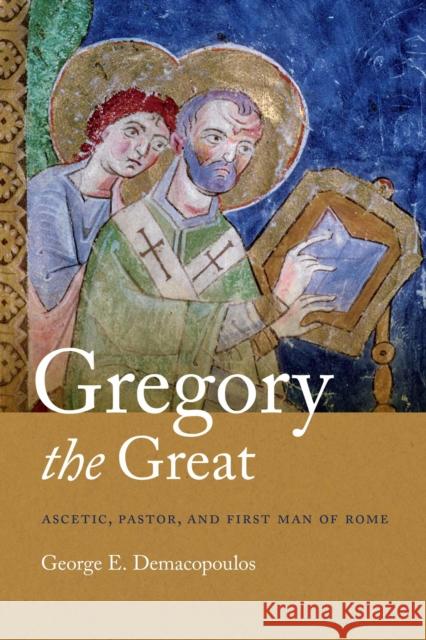Gregory the Great: Ascetic, Pastor, and First Man of Rome » książka
Gregory the Great: Ascetic, Pastor, and First Man of Rome
ISBN-13: 9780268026219 / Angielski / Miękka / 2015 / 246 str.
Gregory the Great: Ascetic, Pastor, and First Man of Rome
ISBN-13: 9780268026219 / Angielski / Miękka / 2015 / 246 str.
(netto: 97,71 VAT: 5%)
Najniższa cena z 30 dni: 102,39
ok. 22 dni roboczych.
Darmowa dostawa!
Gregory the Great (bishop of Rome from 590 to 604) is one of the most significant figures in the history of Christianity. His theological works framed medieval Christian attitudes toward mysticism, exegesis, and the role of the saints in the life of the church. The scale of Gregory's administrative activity in both the ecclesial and civic affairs of Rome also helped to make possible the formation of the medieval papacy. Gregory disciplined malcontent clerics, negotiated with barbarian rulers, and oversaw the administration of massive estates that employed thousands of workers. Scholars have often been perplexed by the two sides of Gregory--the monkish theologian and the calculating administrator.
George E. Demacopoulos's study is the first to advance the argument that there is a clear connection between the pontiff's thought and his actions. By exploring unique aspects of Gregory's ascetic theology, wherein the summit of Christian perfection is viewed in terms of service to others, Demacopoulos argues that the very aspects of Gregory's theology that made him distinctive were precisely the factors that structured his responses to the practical crises of his day. With a comprehensive understanding of Christian history that resists the customary bifurcation between Christian East and Christian West, Demacopoulos situates Gregory within the broader movements of Christianity and the Roman world that characterize the shift from late antiquity to the early Middle Ages. This fresh reading of Gregory's extensive theological and practical works underscores the novelty and nuance of Gregory as thinker and bishop. "Gregory the Great: Ascetic, Pastor, and First Man of Rome has the potential to be the most important intellectual biography of Pope Gregory I to appear since the publication in 1988 of Carole Straw's landmark study, Gregory the Great: Perfection in Imperfection. Demacopoulos proposes a new interpretive paradigm by insisting that the 'problem of the two Gregories' is not really a problem at all: Gregory's ascetic and pastoral theology, he argues, informs and structures his administrative practices. This important insight will have significant impact on future research." --Kristina Sessa, Ohio State University










